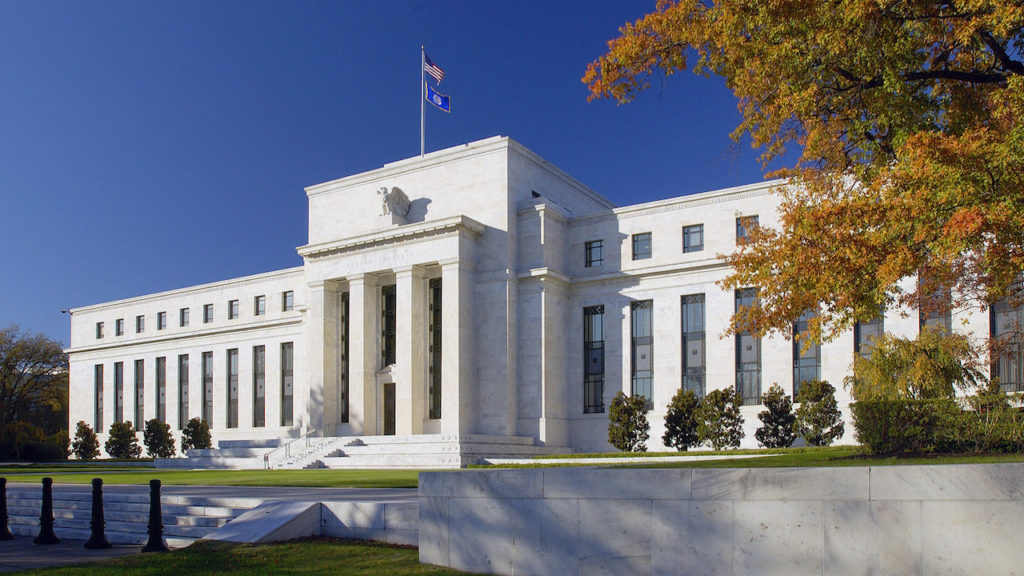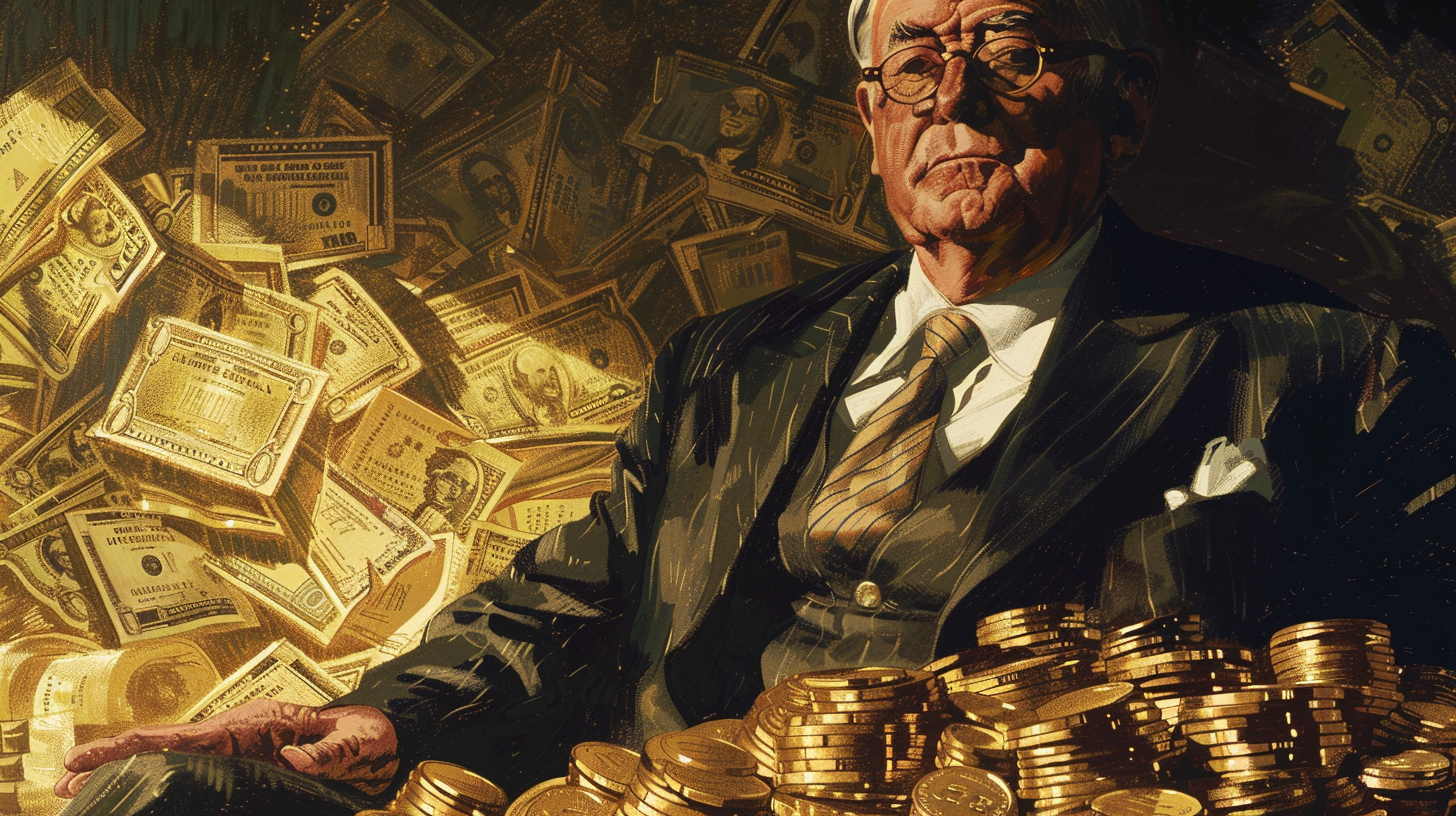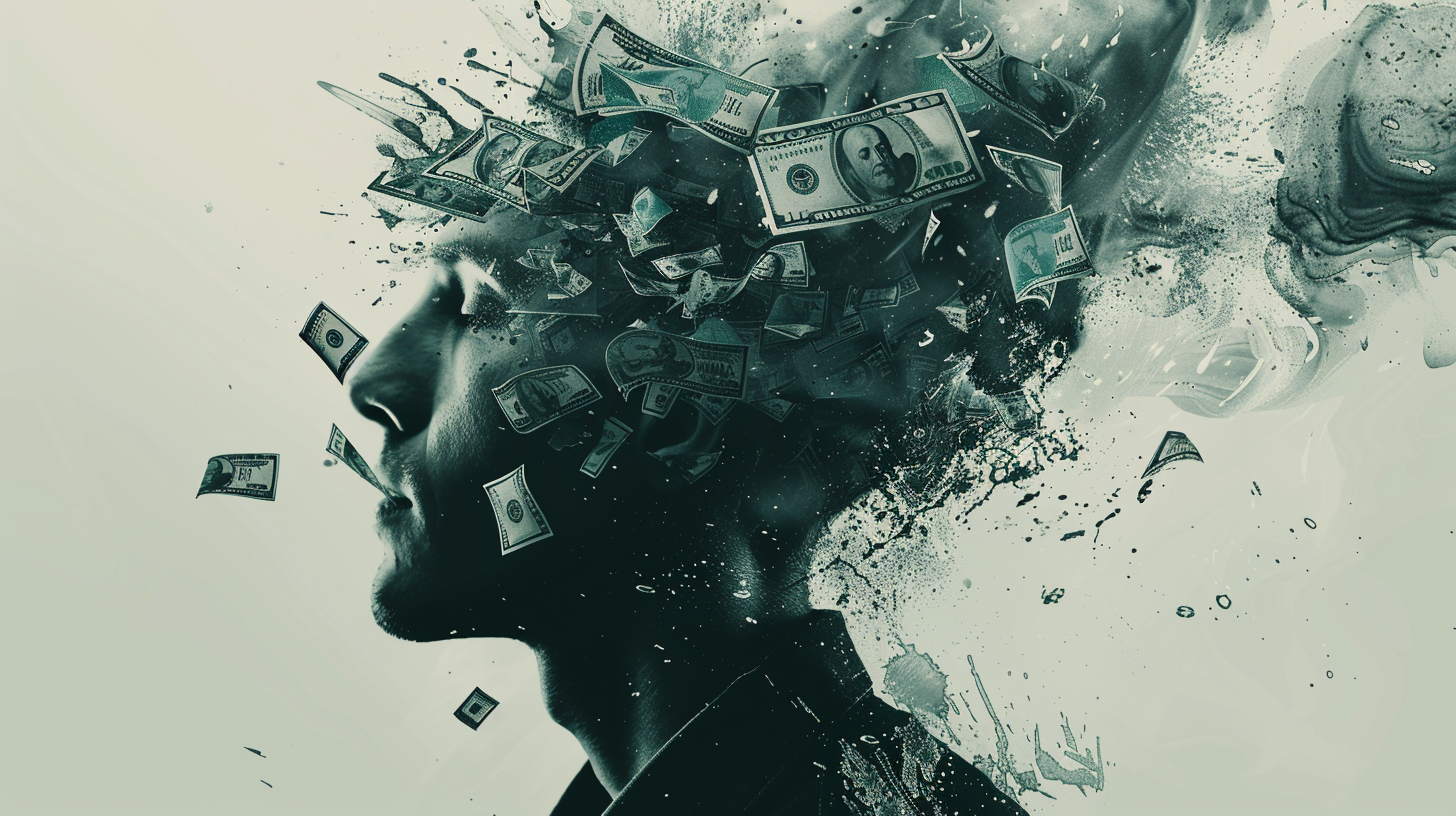Central Banking Is Rooted in Socialism
As Ron Paul pointed out, the recent brouhaha at the Federal Reserve when information came out revealing several central bank officials making multiple multimillion-dollar stock trades in 2020 even as the Fed was putting its big fat thumb on the economic scales was a minor thing compared to the bigger scandal – the everyday operation of the Fed.
The Fed engages in price-fixing. And it fixes one of the most important prices in the economy – the price of money. Peter Schiff said this always ends in a disaster.
Whenever the government interferes in the free market to fix prices, it creates problems — shortages, surpluses. It’s always a mistake. And this is an even bigger mistake because money is a very important price. It’s one half of every transaction. And we’ve gotten it wrong thanks to the Fed.”
Oddly, most people associate central banking with capitalism. But as economist Jörg Guido Hülsmann explains, it actually has its roots in socialism.
![]()
The following article was originally published by the Mises Wire. The opinions expressed are the authors and don’t necessarily reflect those of Peter Schiff or Schiff Gold.
It is well known that socialism is a shortage economy. It is the economy of inefficiency and corruption, of indifferent workers and of bigwigs, of lacking spare parts, of lacking funds, of failure, of permanent reform needs and of constantly unsuccessful reforms. This concerns in particular total socialism, as it was realized in the Soviet Union or under National Socialism. But it is no less evident in the numerous partial socialisms that are featured in the real existing welfare state, in its numerous state “systems.” Budget deficits year in, year out despite high contributions—that is the reality in the state pension system and in the state health system. The state education system is similar: declining student performance and growing illiteracy despite sky-rocketing expenditure. No private entrepreneur could afford to let the costs get out of hand in such a way. Anyone who is in competition has to keep improving. Only those who have a legal monopoly and can make use of taxpayers’ money if necessary do not need it.
Now there is one partial socialism that stands out from the usual array of failures. Here we see gains instead of losses. Here we often find all the other signs of a successfully run company, from the private legal form to the pinstripe-filled boardroom. We are talking about central banking. The term “central bank” actually refers quite clearly to a centrally planned economy. But when people talk about the Fed, the ECB or other central banks today, hardly anyone thinks that they are talking about an offspring of the socialist spirit. On the contrary, central banks are typically viewed as particularly “capitalist.” After all, what would be more capitalist than money? And what would be more closely related to money than a bank?
Upon closer inspection, however, it appears that this connotation may not be entirely correct. In the unbridled market economy, private property and competition prevail. Central banks, on the other hand, are usually state institutions. Even those central banks that are private-law organizations (as in the United States, Japan, and Switzerland) are subject to special laws and their directors are appointed by national governments. In addition, central banks always and everywhere enjoy a legal monopoly. Their banknotes and their deposit money are largely withdrawn from free competition. The market participants are compelled to use the money of the central banks.
This money is one of a kind. Indeed, it can basically be produced in unlimited quantities. The production of money by the private commercial banks is limited by their equity capital and also by the cash deposits of their customers. But central banks do not need equity or cash deposits. It is they who create cash. They can generate cash out of nothing and practically for free. Certain legal limits are set for them, but in times of crisis, as in 2008–09 and in 2020–21, these limits can be relaxed quickly and dramatically. If necessary, they can also be abolished entirely.
Central banks, therefore, have potentially tremendous power. If only let loose, they can control all of the economy and society. There is almost no limit to the number of new loans they can issue. They can provide these loans to some and deny them to others. And by implication, they can also control the use of all available resources. After all, labor usually moves where it is best paid. Raw materials and capital goods are typically sold to those who offer the highest prices. If you control the printing press, you can also let the real resources flow exactly where you think it is right. Whether this use of funds is also profitable plays a rather subordinate role for central banks (unlike commercial banks). You do not have to work hard and invest well to cover losses. One push of a button is enough.
Central banks are therefore made for do-gooders. He who runs a central bank does not need to do painstaking educational work in order to bring about any social change. The humanitarian with the printing press can finance all changes he wishes for at the push of a button. He can just pay other people to do what he wants. He does not need any savings or capital for this. He does not need a democratic majority either. As long as he has the printing press under control, he could by and large give a damn about what other people think or wish.
This momentous fact has not escaped the attention of socialist theorists. The Saint-Simonians in France had already grasped it at the beginning of the nineteenth century. They understood that the economy of a country could be controlled particularly easily and safely with the help of the printing press. A few years later, the demand for the “centralization of credit in the hands of the state through a national bank with state capital and an exclusive monopoly” soon also held center stage in the 1848 Communist Manifesto by Marx and Engels.
Unsurprisingly, the enormous possibilities of creating money from nothing have been used again and again to finance state industrial policy and socialist experiments. In the 1970s, British historian Antony Sutton reported that some of New York’s Wall Street banks had financed the radical transformation of traditional European societies. They supported Lenin and Stalin as well as Adolf Hitler with billions of dollars. That would not have been possible without the refinancing from the American central bank.
In our day, too, the historical connection between the central banking system and political utopias is being brought back to life. This time it appears in the form of a “green” and egalitarian transformation of the economy and society. The directors of the ECB [European Central Bank] and the Fed have already officially committed to this.
The new humanitarians with the printing press are undoubtedly a great danger to humanity. They threaten everyone’s prosperity by channeling scarce resources into unprofitable (and therefore unsustainable) uses. But they also threaten the free social order as a whole, in that they are preparing to disempower the open competition of all social forces. They want to replace this competition with the rule of a non-elected leadership caste.
However, green central bank policy is not to be condemned primarily because it supposedly pursues ecological goals, but because a central bank comes into its own here. Central banks are by their very nature destructive. Even if they are not led by self-proclaimed ecologists and socialists, they favor the cousin, favoritism and the bigwig economy. The economists of the Austrian school have shown, among other things, that central banks always and everywhere weaken economic growth by undermining the propensity to save; that they are destabilizing the economy by fueling a debt economy; that they incite greed and avarice; and that they create blatant inequalities in income and wealth. Central banks cannot be reformed, they must be abolished.
This article is a translation of an article that has appeared in the German edition of the Epoch Times, in October 2021.
Jörg Guido Hülsmann is senior fellow of the Mises Institute. He teaches in France, at Université d’Angers





 Beneath the sweet surface of our favorite treats lies a bitter reality: inflation has sent cocoa prices soaring to unprecedented heights. Once deemed the food of the gods and now a daily indulgence for millions, chocolate is facing a dramatic upheaval as wholesale cocoa prices have rocketed past $11,000 per ton. Our guest commentator explains […]
Beneath the sweet surface of our favorite treats lies a bitter reality: inflation has sent cocoa prices soaring to unprecedented heights. Once deemed the food of the gods and now a daily indulgence for millions, chocolate is facing a dramatic upheaval as wholesale cocoa prices have rocketed past $11,000 per ton. Our guest commentator explains […] As fiscal imbalances persist, driven by coercive measures and artificial currency creation, the middle class faces erosion and purchasing power dwindles. But as the world hurtles towards a potential reckoning, the lingering question remains: can this precarious balance last, or are we teetering on the brink of a cataclysmic economic shift?
As fiscal imbalances persist, driven by coercive measures and artificial currency creation, the middle class faces erosion and purchasing power dwindles. But as the world hurtles towards a potential reckoning, the lingering question remains: can this precarious balance last, or are we teetering on the brink of a cataclysmic economic shift? Beneath the veneer of headline job gains, the American economy teeters on the brink: native employment dwindles as part-time and immigrant jobs surge. Government hiring camouflages looming recession warnings. Inflation and political blunders worsen the crisis, fueling public outrage at the establishment’s mishandling of the economy.
Beneath the veneer of headline job gains, the American economy teeters on the brink: native employment dwindles as part-time and immigrant jobs surge. Government hiring camouflages looming recession warnings. Inflation and political blunders worsen the crisis, fueling public outrage at the establishment’s mishandling of the economy. On April 5 1933, Franklin D. Roosevelt abandoned the gold standard, wielding questionable legal power amidst America’s dire economic depression. His whimsical approach to monetary policy, including coin flips and lucky numbers, unleashed unprecedented inflation and price increases that have since amounted to nearly 2500%. Our guest commentator explores this tragic history and the legacy […]
On April 5 1933, Franklin D. Roosevelt abandoned the gold standard, wielding questionable legal power amidst America’s dire economic depression. His whimsical approach to monetary policy, including coin flips and lucky numbers, unleashed unprecedented inflation and price increases that have since amounted to nearly 2500%. Our guest commentator explores this tragic history and the legacy […] Welcome to the world of modern economics where the term “inflation” no longer signifies the increase in the quantity of money, but has evolved into a plethora of buzzwords. From “shrinkflation” to “greedflation,” these new terms and semantic shifts are by no means harmless but a manipulation of popular sentiment. Von Mises said they play […]
Welcome to the world of modern economics where the term “inflation” no longer signifies the increase in the quantity of money, but has evolved into a plethora of buzzwords. From “shrinkflation” to “greedflation,” these new terms and semantic shifts are by no means harmless but a manipulation of popular sentiment. Von Mises said they play […]